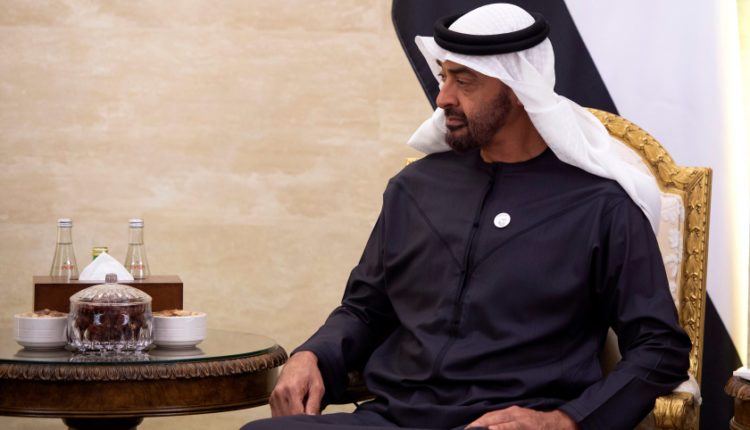Middle East Eye website said that the UAE’s speech that focuses on stability in the Middle East will lead to failure to achieve it and foreshadow changes in the region, pointing out that the UAE is trying through misleading information networks to win the hearts and minds of journalists, think tanks and policymakers.
The last few weeks have been full of developments in the Arab world, said Andreas Krieg, an assistant professor at the Defence Studies Department of King’s College London and a strategic risk consultant. Algerian President Abdelaziz Bouteflika announced his resignation, and on almost the same day a retired Libyan general, Khalifa Hafter, launched an attack on the capital Tripoli and Sudanese President Omar al-Bashir was removed after 30 years of rule.
“The naïve idealism of the early days of the Arab Spring gave way to widespread cynicism as some countries collapsed into civil war while others, such as Egypt, transitioned into military dictatorship after a brief year of civilian rule under the Muslim Brotherhood,” Krieg notes.
“The military coup d’etat in Cairo in the summer of 2013, was indeed a turning point in the Arab Spring as the counterrevolutionaries under the slogan of “authoritarian stability” reasserted themselves. With the exception of Tunisia, all revolutions either got stuck in atrocious civil wars or saw survivors of the ancient regimes assume power The architect of this counterrevolution sat in Abu Dhabi: Crown Prince Mohammed bin Zayed al Nahyan (MbZ), the de facto ruler of the United Arab Emirates (UAE) and mastermind behind Little Sparta’s rise as an assertive military power in the region.”
“Plagued by regime insecurity paranoia, MbZ looked upon the emancipated civil society in the Arab world as a fundamental threat to national security – any victory for pluralistic, civilian rule in the region would be a defeat for the UAE’s model of military rule,” he said.
Ben Zayed adopted promoting the model of Abdul Fattah al-Sisi, which is based on the principle of or authoritarian stability. Social and political pluralism under a system of multiplicity leads to chaos, according to this concept.
The speech was part of Western fears about the emergence of a new social and political situation that is likely to strengthen the political Islam of the UAE’s arch-foe, the writer says.
The UAE has presented Egypt as a condition for its view of the nature of the regime in the region, where repression is justified as long as it leads to a state of order, stability, and counter-terrorism. The UAE does not deny its strategic role in overthrowing President-elect Mohamed Morsi through the exploitation of the army. And in Libya, the UAE does the same thing through supporting the retired Major General Khalifa Hafter.
Abu Dhabi and Egypt provided financial and logistical support to the Al-Karama operation led by Haftar. He came to rely on Emirati and Egyptian air forces in its battle to take control over Tripoli.
In Algeria, protests have led to the resignation of President Bouteflika, and there was an opportunity for a peaceful transition to a civilian regime. However, Algerian army chief of staff Ahmed Gaid Salah, who has been seen visiting the UAE multiple times, also believes that there should be a strong army to form a guarantee of stability and not allow political Islam to pose a threat to the authority of the army.
In Sudan, the scene is repeated, the writer says, while the protesters welcomed the news of the resignation of Bashir, but the power of the army that returned after them made them continue to protest. The UAE strongly supports General Abdul Fattah al-Burhan, the president of the Transitional Military Council, which is a reliable partner, especially as he was responsible for recruiting troops Sudanese to fight alongside the UAE and Saudi alliance in Yemen.
According to the writer, the UAE seeks to consecrate the Egyptian model and export it to Algeria and Sudan, but the Egyptian case confirms that the armed state army serves a small group at the expense of the majority of the population and thus unwittingly encourages the oppressed masses to carry out another revolution.
Despite all the efforts exerted by the UAE, the writer says, however, the events confirm that the peoples can rise again if the process of denial and the perpetuation of the dictatorship continues, even if they came in different uniforms.



